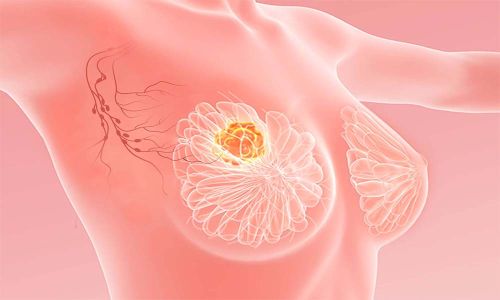Breast cancer is one of the most common cancers seen in women. Thanks to early diagnosis and treatment, the chance of complete recovery is quite high. Breast cancer surgery is an important part of the treatment plan. Factors such as the stage of the disease and the size of the tumor may cause changes in the surgery.
Who is Breast Cancer Surgery Suitable for?
 Surgery is a treatment method that requires surgical intervention for diagnosed patients. The feasibility of this surgery depends on many factors. The stage of the disease, the size of the tumor and its spread are the main factors. In addition, the patient's general health condition is also an important criterion. Surgical intervention plays an important role in controlling breast cancer. Surgery is done to remove the tumor and prevent the cancer from spreading. This method is frequently preferred in the treatment of breast cancer. Surgical intervention in early stage breast cancer usually gives effective results. In the early stage, the tumor is located in a limited area. In more advanced stages, surgery can be combined with additional treatments. Chemotherapy and radiotherapy are examples of these treatments. The patient's health condition is important for the suitability of the surgery. Surgery may be risky for people with serious heart, lung or other organ problems. In such cases, alternative treatment methods are evaluated. Mastectomy can be performed in patients with genetic predisposition. Patients carrying BRCA1 or BRCA2 gene mutations are included in this group. As a result, suitability for breast cancer surgery is evaluated by the doctor. The stage of the disease and the patient's condition are taken into account. Treatment is planned in the light of this information. Effective communication between patient and doctor is very important in this process.
Surgery is a treatment method that requires surgical intervention for diagnosed patients. The feasibility of this surgery depends on many factors. The stage of the disease, the size of the tumor and its spread are the main factors. In addition, the patient's general health condition is also an important criterion. Surgical intervention plays an important role in controlling breast cancer. Surgery is done to remove the tumor and prevent the cancer from spreading. This method is frequently preferred in the treatment of breast cancer. Surgical intervention in early stage breast cancer usually gives effective results. In the early stage, the tumor is located in a limited area. In more advanced stages, surgery can be combined with additional treatments. Chemotherapy and radiotherapy are examples of these treatments. The patient's health condition is important for the suitability of the surgery. Surgery may be risky for people with serious heart, lung or other organ problems. In such cases, alternative treatment methods are evaluated. Mastectomy can be performed in patients with genetic predisposition. Patients carrying BRCA1 or BRCA2 gene mutations are included in this group. As a result, suitability for breast cancer surgery is evaluated by the doctor. The stage of the disease and the patient's condition are taken into account. Treatment is planned in the light of this information. Effective communication between patient and doctor is very important in this process.
How is Breast Cancer Surgery Done?
 Breast cancer surgery is performed according to factors such as the patient's condition and stage. Its main purpose is to prevent the spread of the disease by completely removing the cancerous tissue. The surgery process takes place in three stages: preliminary preparation, surgical intervention and post-care. A detailed examination of the patient is performed before the surgery. The size, location and effect of the cancer on other tissues are evaluated with various imaging techniques. In addition, the patient's general health condition is also reviewed to determine his suitability for surgery. The preoperative preparation process is of great importance in terms of planning. The surgical method depends on the type of cancer and its spread. In lumpectomy, the cancerous tissue and a small amount of healthy tissue around it are removed. This method is generally preferred for early stage breast cancer. Mastectomy is a surgery in which the entire breast is removed and is performed in more advanced stages. In some cases, armpit lymph nodes are also removed and this procedure is combined with a lymph node biopsy. During the postoperative period, the patient enters a recovery period in accordance with the doctor's recommendations. In some patients, additional treatments such as chemotherapy, radiotherapy or hormone therapy may be applied. Additionally, breast reconstruction can be performed for patients with aesthetic concerns. During this process, the patient should support recovery with regular check-ups and lifestyle changes. As a result, surgery is a treatment method that is individually planned and carefully carried out. Effective communication between the patient and the doctor at every stage increases the success of the treatment.
Breast cancer surgery is performed according to factors such as the patient's condition and stage. Its main purpose is to prevent the spread of the disease by completely removing the cancerous tissue. The surgery process takes place in three stages: preliminary preparation, surgical intervention and post-care. A detailed examination of the patient is performed before the surgery. The size, location and effect of the cancer on other tissues are evaluated with various imaging techniques. In addition, the patient's general health condition is also reviewed to determine his suitability for surgery. The preoperative preparation process is of great importance in terms of planning. The surgical method depends on the type of cancer and its spread. In lumpectomy, the cancerous tissue and a small amount of healthy tissue around it are removed. This method is generally preferred for early stage breast cancer. Mastectomy is a surgery in which the entire breast is removed and is performed in more advanced stages. In some cases, armpit lymph nodes are also removed and this procedure is combined with a lymph node biopsy. During the postoperative period, the patient enters a recovery period in accordance with the doctor's recommendations. In some patients, additional treatments such as chemotherapy, radiotherapy or hormone therapy may be applied. Additionally, breast reconstruction can be performed for patients with aesthetic concerns. During this process, the patient should support recovery with regular check-ups and lifestyle changes. As a result, surgery is a treatment method that is individually planned and carefully carried out. Effective communication between the patient and the doctor at every stage increases the success of the treatment.
Recovery Process After Breast Cancer Surgery
 The recovery process after breast cancer surgery is different for each patient. Its length and difficulty depend on the type of surgery. The patient's general health condition and additional treatments applied also affect this process. This process includes physical and psychological recovery and is closely monitored by the doctor. In the postoperative period, patients are usually discharged within a few days. The duration varies depending on several factors. For example, recovery after lumpectomy may be completed in a shorter time. However, in larger operations such as mastectomy, the recovery period may be longer. Mild pain, swelling and tenderness may be experienced in the surgery area. This situation is normal and can be controlled with medications recommended by the doctor. The patient's arm movements may be limited and there may be a risk of lymphedema. Physical therapy exercises are recommended to prevent lymphedema. In addition, regular cleaning and dressing of the wound after surgery reduces the risk of infection. Patients may need psychological support in the postoperative period. Breast loss or change may cause lack of self-confidence in some patients. In such cases, the patient can join support groups. Can receive psychological counselling. As a result, the recovery process after breast cancer surgery is a process that requires patience and attention. The patient complies with the doctor's recommendations. Thus, both physical and psychological healing is supported.
The recovery process after breast cancer surgery is different for each patient. Its length and difficulty depend on the type of surgery. The patient's general health condition and additional treatments applied also affect this process. This process includes physical and psychological recovery and is closely monitored by the doctor. In the postoperative period, patients are usually discharged within a few days. The duration varies depending on several factors. For example, recovery after lumpectomy may be completed in a shorter time. However, in larger operations such as mastectomy, the recovery period may be longer. Mild pain, swelling and tenderness may be experienced in the surgery area. This situation is normal and can be controlled with medications recommended by the doctor. The patient's arm movements may be limited and there may be a risk of lymphedema. Physical therapy exercises are recommended to prevent lymphedema. In addition, regular cleaning and dressing of the wound after surgery reduces the risk of infection. Patients may need psychological support in the postoperative period. Breast loss or change may cause lack of self-confidence in some patients. In such cases, the patient can join support groups. Can receive psychological counselling. As a result, the recovery process after breast cancer surgery is a process that requires patience and attention. The patient complies with the doctor's recommendations. Thus, both physical and psychological healing is supported.


